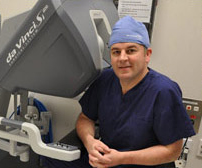Vasectomy causes aggressive prostate cancer – HELP!!!
How many of you have already had a patient get in touch about this latest scare? As one expects nowadays, I first heard about this paper on Twitter within a few minutes of it being published, but it wasn’t long after that a recent patient of mine rang my rooms to challenge me about the reassurance I had given him only last week about the lack of increased risk of prostate cancer, which he had specifically asked me about. And of course since then, we have had headlines in the mass media all over the world alerting us to the results of this 24-year study that suggests that vasectomy confers an increased risk of not just prostate cancer, but high-grade prostate cancer in men undergoing vasectomy. Here are just some of the headlines:
So what are we to make of all this? The private vasectomy counselling has always been a challenging area due to the well documented possibilities of early and late failure, and also of the ever present issue of chronic scrotal pain. And while the area of prostate cancer risk has been raised previously, I must say I have always felt comfortable saying that on balance, the increased risk of developing significant prostate cancer following vasectomy proved to be minimal. “Don’t worry about it” was my typical blithe reassurance. Do I have cause to change my advice now?
Let’s look at this paper from Siddiqui et al. The data is taken from the well-known Health Professionals Follow-up Study (HPFUS), which originally enrolled almost 50,000 men aged between 40 and 75 back in 1986. Of these, about 12,000 (25%) underwent vasectomy and 6000 of these (12.2% of population) were subsequently diagnosed with prostate cancer over the 24-year follow-up period. Of these, 811 (1.6%) died of prostate cancer. The authors calculate that vasectomy was associated with a small overall increase in the risk of prostate cancer (RR = 1.10). However the headlines are coming from the higher relative risk of 1.22 among men subsequently diagnosed with high-grade prostate cancer (Gleason 8 to 10). Also, vasectomy appeared to confer a higher relative risk (1.19) of actually dying of prostate cancer or developing distant metastases compared to men who did not undergo vasectomy. It is these findings that vasectomy appears to confer not just an increased risk of prostate cancer, but an increased risk of developing aggressive or a lethal prostate cancer, which has provoked some concern.
This topic is not new and other studies have shown that this risk does not exist or at best, the risk is minimal and the quality of evidence not good enough to change practice. Does this current paper change all that? It will certainly change the nature of counselling for men considering vasectomy as there may well be a case to consider. As the population of men presenting for vasectomy are not a typical population who would be counselled about the early detection of prostate cancer, perhaps this other difficult counselling area also needs to be broached.
HELP!!!!
Declan Murphy is a urologist at Peter MacCallum Cancer Centre in Melbourne, Australia, and Associate Editor at BJUI. Twitter @declangmurphy






Nice summary Declan. A difficult topic. I think we just continue to carry on and counsel as thoroughly as we can. I don’t see a clear biological explanation and other studies have not shown a clear link. I wrote some comments here too although I am not sure why the hyperlinks got removed:
https://news.nationalpost.com/2014/07/23/snip-judgments-are-vasectomies-and-prostate-cancer-linked/
Thanks Rajiv. I am still having concerned patients raising this with me and I think we should acknowledge some uncertainty about the links. I am less confident about saying “there’s no link” than I used to be.
I like your blog on the KevinMD website
Hi Declan,
Good post Declan. Having vasectomised half of our town, the day that the press release came out, I rang Prof Brian Cox, Epidemiologist at the University of Otago, and author of this paper – https://www.ncbi.nlm.nih.gov/pubmed/12069674
His reply –
“My comments on the vasectomy and “lethal” prostate cancer are as follows.
The results of the relationship between vasectomy and prostate cancer have tended to be different in the USA compared with elsewhere. As the authors indicate, this is thought to be due to the nature of health service provision in the USA. Vasectomy in the USA has been conducted by urologists and when you visit a doctor in the USA and have health insurance they are very keen to have you checked annually, for anything, for life. This resulted in the association of a higher incidence of prostate cancer in men who had a vasectomy. However, that does not explain many of the results in the paper.
It is somewhat odd that the authors labelled “lethal cancer” as death from cancer or metastatic disease in bone or other organs. Lethal would seem to imply death had already occurred rather than be presumed. The method of treatment of the vasectomy group and non-vasectomy groups differed slightly, with radical prostatectomy favoured in the vasectomy group slightly more than among non-vasectomised men. That is, follow-up of radical prostatectomy is likely to be by a urologist whilst a radiation oncologist may be more likely to follow-up non-vasectomised men. Their follow-up practices may differ. If patients, in this case health professionals, with vasectomy were more likely to be followed-up with PSA tests and high PSA levels generated greater numbers or different types of investigations (such as CT scanning) in urologists compared to oncologists then patients who had vasectomy would be more likely to have metastatic disease discovered. As they say, “the more you look, the more you find”. Of course, this is why metastatic disease is not the best marker of assessments of the failure of treatment and mortality is the much preferred measure. However, this would only affect the detection of metastatic disease and not deaths. I suspect that the different follow-up by the different types of clinicians may explain a large part of the results found.
I have to ask why, if lethal cancers is what they wanted to look at, they did not present an analysis of those who died of prostate cancer, even if there were relatively few numbers of deaths. They do not seem to even mention the numbers of deaths, so they are likely to be few.
I note that the original studies of the incidence of prostate cancer and vasectomy in this cohort found relative risks for prostate cancer in those who had a vasectomy of 1.6 and 1.7, higher than their new report for “lethal cancers” and any effect now reported is smaller.
In our New Zealand study published in JAMA (attached) we found relative risks for T3 and T4 prostate cancer (as determined by the treating clinician) from vasectomy of 0.81 (95%CI 0.56-1.18) and 0.53 (95%CI 0.20-1.41), respectively.
The issue remains a little unclear but the New Zealand results are reassuring.
Thank you very much for the enquiry as such enquiries always sharpen the focus of our research.
Regards,
Brian “
Thank you very much Liam and Brian for this excellent overview. It makes perfect sense. I think I will refer patients to Brian’s excellent comment which is very reassuring!
Declan
Many thanks Liam and Prof Cox. It’s a very useful explanation to have at hand when trying to provide a clear answer on an emotive and common question.
Cheers,
Adam
Dec. Very interesting blog and great replies. Very useful and I suspect all urologists have at least had this queried by patients recently. It would be interesting to know if people are consenting patients differently now?
I do think these epidemiological studies need to be interpreted very carefully as if you look at enough parameters in large enough cohorts then “statistical differences” will always be found.
Where there is no clear causal link then the results should be treated with utmost caution, both by the readers, authors and editorial writers. I posted this recently on Twitter from a website where you can generate your own spurious correlations. Does anyone believe that deaths from surgical operations with stoma formation correlates with milk consumption of the population? Of course not … because there is no causal link … but search hard enough and you will find these statistical correlations.
I had a patient change his mind and deciding not to have a vasectomy last week despite referring him to this blog. The problem is that many patients believe current news over historical records. More recent is more relevant.
Putting the NZ differences in context, there would be similar variations with genetics, environment, diet and other nationalities. An almost impossible question to answer given the worldwide variations.